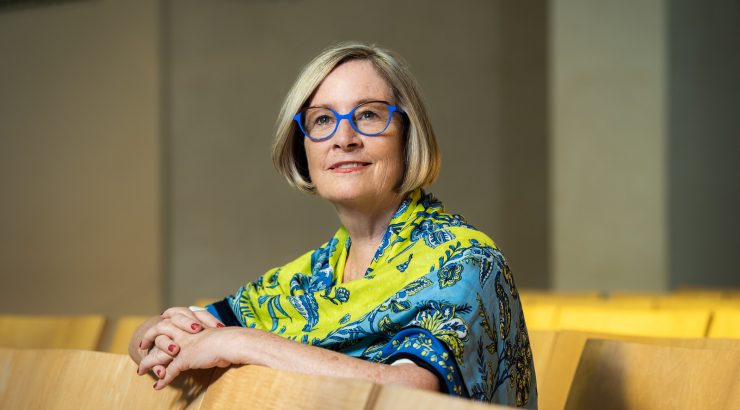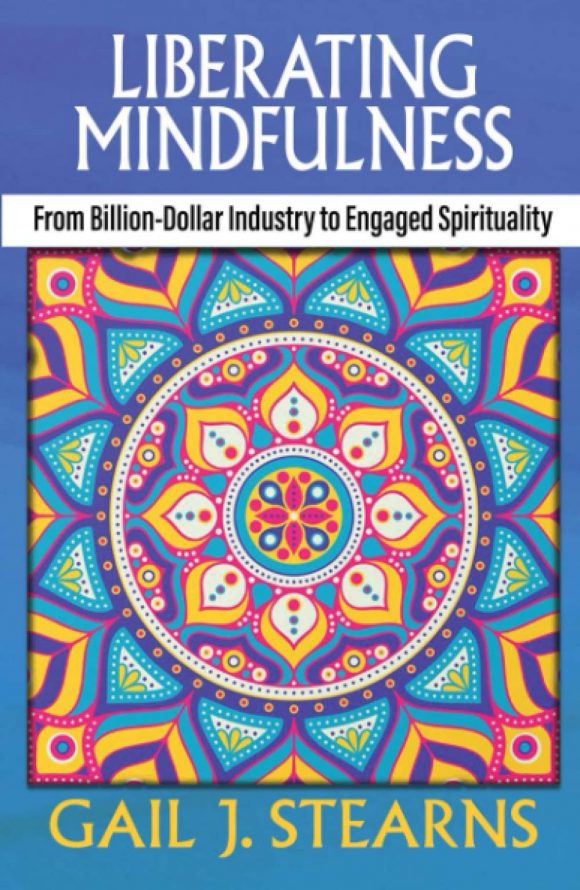
Liberating Mindfulness Faculty Books
September 29, 2022
How can self-help practice bring about true individual happiness or societal happiness when so many problems stem from racist, misogynist, heteronormative, and classist policies and structures?
This is just one of the hard questions Dean Gail Stearns, Associate Professor of Religious and Peace Studies in Wilkinson College tackles in her latest publication Liberating Mindfulness: from Billion-dollar Industry to Engaged Spirituality (Orbis, 2022).
“Over the past dozen years, I have watched mindfulness emerge into a tool for mining the human brain and gathering our attention for marketing and corporate profit, by promising greater happiness,” she said.
Spending most of her life engaged in contemplative and meditative practices, she only recently entered the world of mindfulness. Seeking to take it back from the commercial world, she demonstrates its usefulness in spiritual life in her book.
Throughout a six-month sabbatical Dr. Stearns spent weeks in courses, tours, and silent retreats to unfold the deep connection between inner awareness practices and working for communal justice, research for both her book and own personal growth. While she finds basic tools of mindfulness meditation to be extremely useful for momentary stress relief and helping shift habits toward greater equanimity, she says it won’t bring happiness.
“As long as it is marketed and taught as an individual self-help practice it will not bring about true individual happiness or societal happiness. Convincing individuals that they can solve problems through individual meditation practice ignores the fact that those problems largely stem from racist, misogynist, heteronormative, and classist policies and structures.”
In her book, Dr. Stearns discusses how this must come to light, even more now, through COVID-19 and Black Lives Matters, illustrating how stress is not equally distributed throughout society and she suggests that mindfulness awareness has the potential, if it is wrested from its current complicity with unjust structures, to disrupt dominant notions of happiness toward collective compassionate consciousness.
Dr. Stearns takes the reader on her personal journey into mindfulness and analyzes the contemporary mindfulness movement through the lens of critical theory. “I interviewed many persons in the contemporary mindfulness movement including Jack Kornfield; those coupling mindfulness with trauma and anti-racist work, like Justin Michael-Williams; the incredible Vipassana Buddhist teacher Michelle McDonald – not currently so well-known but one of the founders of meditation retreats in this country; academics like the associate dean of Religious Life at USC, Jim Burklo. I also interviewed colleagues at Chapman University, including Professors John Compton [Political Science] and Hescham El-Askary [Computational and Data Science].”
Dr. Stearns hopes readers will continue to utilize mindfulness tools, which she says are very useful for managing daily stress, but also discover that not all suffering is solvable through individual practice.
“When it tells you this, the contemporary mindfulness movement is actually complicit with causes of our stresses pressuring us to produce, compete, and chase false idols of happiness. We ask the question: are we being mindful about mindfulness?”
In addition to that, she wants her readers to know that it is possible to couple mindfulness tools with their own value system, whether it is spiritual tradition or values of compassion shared with a community.
“Mindfulness becomes a tool of awareness toward dismantling the unequal distribution of stress and pain in our society.”


